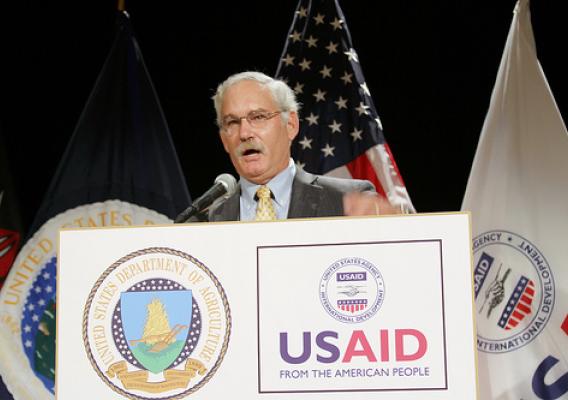The USDA and the U.S. Agency for International Development (USAID) have once again joined forces to collaborate with individuals and organizations that feed hungry people, promote sustainable development and provide technical assistance around the world. This is the thirteenth year of the International Food Aid and Development Conference, and I was proud to deliver keynote remarks here in Kansas City, Mo. Nearly 600 people from more than 25 countries discussed what has worked, what has not, and what we can do in the future to improve our food assistance and program delivery.
The U.S. government’s international food assistance programs will benefit 5.2 million people in the developing world this year. The challenges of global food security are enormous -- nearly one billion people are malnourished, and this number will likely grow as the world population continues to rise. Meanwhile, the United States, like many other nations, is facing serious budget pressures. In addition, commodity prices and demand continue to rise, squeezing food assistance dollars further.









